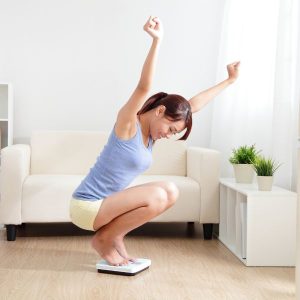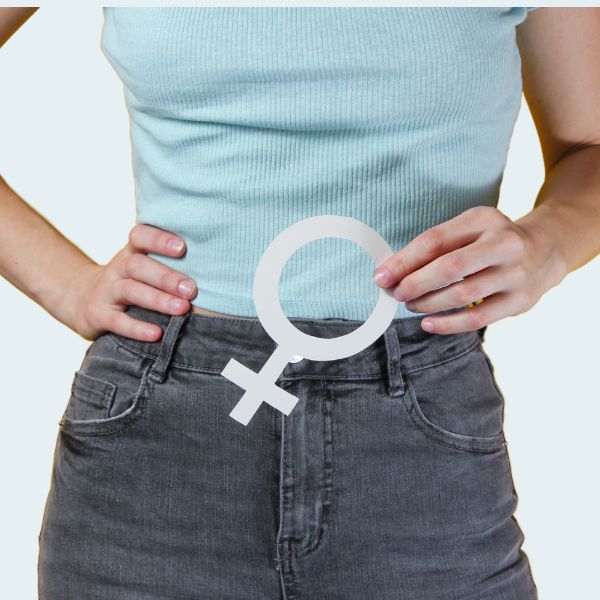Hormone Pellets Therapy In Sugar Land, TX, Might Be Your Ticket To Trimming Down Your Waistline After Menopause.
Though it’s not 100% etched in stone that weight gain will happen after menopause, it’s one of those menopause symptoms that most ladies dread more than hot flashes and mood swings.
However, you don’t have to settle for extra pounds in the middle when lifestyle changes may offer a solution.
Often, adding hormone pellets therapy in Sugar Land, TX, can enhance your efforts, addressing potential hormone-related causes.
Continue feeling confident in your own skin after menopause with hormone pellets therapy in Sugar Land, TX.
Hormonal Changes That Cause Weight Gain Before and After Menopause
Weight gain after menopause isn’t inevitable, but some women do put on some weight once they reach perimenopause and even into menopause. Specifically, some studies suggest that 60 to 70 percent of females will gain some weight during this time. On average, it’s common for a woman to gain 1.5 pounds each year during her 50s.
Sometimes, these additional pounds accumulate directly as a result of hormonal changes. The six main sex hormones in humans are as follows:
- Estrogen
- Progesterone
- Testosterone
- DHEA
- Luteinizing Hormone (LH)
- Follicle-Stimulating Hormone (FSH)
During menopause, estrogen, progesterone, and testosterone all decrease as your body transitions to no longer releasing eggs or ovulating. This drop in hormones is responsible for your menopause symptoms because they’re not balancing one another, and, individually, they can no longer regulate certain functions as usual.
All three of these hormones impact weight, but in different ways. Throughout your younger years, estrogen helps you to store fat in your thighs, hips, and breasts.
As you age and go through perimenopause and menopause, the decrease in estrogen alters how your body stores fat, often contributing to you gaining weight in your abdominal area. The decline also elevates insulin resistance, possibly leading to weight gain.
When testosterone levels are lower than normal, you may have reduced muscle mass, which can decrease your metabolism and promote weight gain. Diminishing progesterone can increase fluid retention and make any weight gain more prominent.
Non-Hormonal Causes of Weight Gain After Menopause
Outside of your hormone levels changing, around your 40s and 50s, your body naturally burns fewer calories as changes happen in areas of the nervous system that affect metabolism. You might also not be able to exercise as much or have less energy to participate in rigorous (or even moderate) physical activity.
In addition, the mitochondria in your cells — the component responsible for converting food into energy — don’t function as well and decrease in number. Your digestion will slow, and your sleep patterns may change. These factors may both affect metabolism since they’ll cause your body to process food less efficiently.
What Can You Do About It?
Weight gain can affect your self-esteem and even your health. While nothing is a guarantee because each person’s body changes in unique ways and responds differently to lifestyle changes as well as medical intervention, you can take steps to support weight loss/management as you age and go through menopause.
-
Forget About Calorie Restriction
Calorie restriction isn’t an effective weight loss method in general, but it’s especially counterproductive after menopause. Your body needs not just the nutrients from foods but also the calories. As an energy source, calories fuel your body, and without enough, you may start to lose muscle mass.
Your body essentially enters safe mode, restricting how many calories you burn to ensure you have enough for all your bodily functions. Eventually, your body will go through a factory reset, and you’ll need even more calories than you did before to try to compensate.
Instead, don’t worry about calories; focus on reducing your portions instead. Eat until you’re content only. Moreover, avoid snacking between meals unless it’s a high-protein snack, veggies, or a fruit.
-
Manage Stress Effectively
Your anxiety may rise after menopause. And if you were already an anxious person, you can imagine what that means. Unfortunately, all that stress and anxiety doesn’t just affect your mental health; it can also impact your waistline. It triggers the release of cortisol, which, in return, may increase your appetite, cravings, and fat storage.
Get your cortisol levels measured if you’re struggling with your weight. It just might be that your level is high. If it is, fear not, you can take steps to lower it, such as meditating, exercising regularly, practicing deep breathing, and nurturing social relations.
-
Consider What You Eat
There isn’t a secret diet that helps every person lose weight. However, your best bet is to eat a diet rich in low-fat proteins, vegetables, fruits, and complex carbohydrates. This way, your body receives all the nutrients it needs to function optimally and maintain your metabolism.
-
Exercise Regularly
While what you eat is a major part of preventing getting heavier, how active you are is essentially equally important. As a general rule, the way to prevent increasing your waistline is to burn as many calories as you’re taking in. And whenever you’re trying to lose, you want to burn even more than you consume.
Physical exertion does tend to be more difficult on the body as you age, especially with osteoarthritis that usually begins after 50. However, you shouldn’t use that as an excuse not to exercise. In fact, that’s even more of a reason to get moving.
Keep in mind that you don’t have to run five miles a day. Just getting 150 minutes of exercise a week and walking or doing whatever it is that’s comfortable and enjoyable for you is enough.
Learn more here: Hormone Pellets Therapy: A Game Changer or a Passing Fad?
Explore the Option of Hormone Pellets Therapy in Sugar Land, TX
 No matter how much you adhere to a stringent diet plan, complete with healthy, nutritious foods and regulated portions, and exercise regularly, that number on the scale may not budge.
No matter how much you adhere to a stringent diet plan, complete with healthy, nutritious foods and regulated portions, and exercise regularly, that number on the scale may not budge.
It may even increase when your hormones — well, lack thereof — are hindering the process in one or more ways.
Although it’s not always a sure thing for every person, hormone replacement therapy can help someone regulate their metabolism, maintain their muscle mass, and improve their energy to assist with weight management and even loss in some cases.
For patients who don’t see optimal results with hormone pellets therapy in Sugar Land, TX, alone, Dr. Shel Wellness & Aesthetic Center also offers medical weight loss, which includes using a medication and making changes based on your specific needs.
Not quite sure if you want to trust someone else with your weight loss journey? Check out our reviews to see for yourself click here.
Take your next step toward better weight control after menopause and schedule your appointment by calling (346) 534-6956.


















